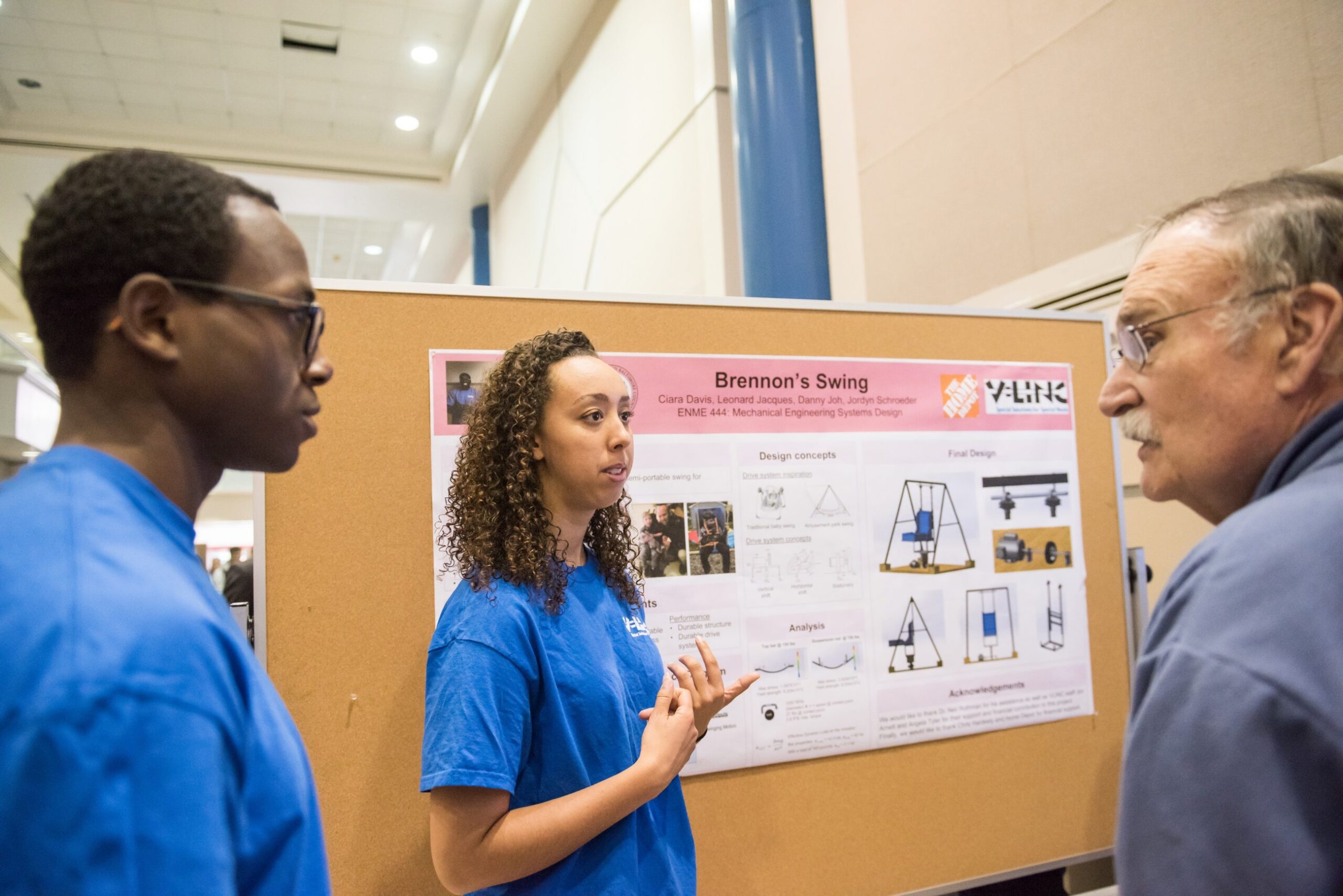UMBC’s commitment to STEM education and increasing diversity in engineering and computing fields is a trademark of the university. Five mechanical engineering faculty are continuing to expand this work through a nearly $1 million grant from the National Science Foundation (NSF) S-STEM program, which focuses on retaining and graduating STEM students via scholarships and activities.
Liang Zhu, PI on the grant and professor of mechanical engineering, explains that the grant will enable UMBC to continue boosting support for diverse students in the major, to propel them toward success in mechanical engineering careers. Zhu is collaborating on the grant with Deepa Madan, assistant professor of mechanical engineering; Ronghui Ma, associate professor of mechanical engineering; Chuck Eggleton, professor of mechanical engineering; and Tim Topoleski, interim chair and professor of mechanical engineering.
This is UMBC’s third round of S-STEM funding since 2010. After the initial grant in 2010, Zhu and her collaborators received a second grant in 2014 for over $500,000 to support student scholarships. The latest round of funding extends the program another five years, and includes collaborations with UMBC’s Meyerhoff Scholars Program, Career Center, student life, and financial services, to connect students with a broad range of resources and supports.
“Scholarships, mentoring, academic support services, internships, research, and professional development opportunities all play a role in this,” says Zhu. “We are excited to test and document how effective these different approaches are at increasing mechanical engineering students’ level of engagement and success.”
Since the program began in 2010, UMBC’s mechanical engineering department has seen an increase in diversity among students in the major. According to data from the NSF, among the 20,000 students who earned bachelor’s degrees in mechanical engineering nationally between 2002-2012, 12% were women, 3% identified as African American, and 8.2% identified as Hispanic. Before the program launched, UMBC’s numbers were similar to the national figures: about 12% of students in the major were women, 11% identified as African American, and 2% identified as Hispanic. Currently, about 19% of students in the major are women, 12% identify as African American, and 5.5% identify as Hispanic. Zhu recognizes there is still a long way to go and hopes to further improve representation in the major over the next five years. Zhu estimates that the new round of funding will be used to support approximately 45 students over the course of the grant, while they earn their undergraduate degrees in mechanical engineering at UMBC.
The S-STEM program is open to incoming freshmen, transfer students, and current students who are pursuing mechanical engineering degrees, provided they maintain a specific GPA and have financial need. Students selected for the program will participate in a variety of activities to enhance their education, including research experiences, faculty and peer mentoring, community-building activities, lectures and other events, and professional development activities.
Zhu has been most energized, recently, by her collaboration with local community colleges, where she and the co-PIs travel to speak about opportunities within UMBC’s mechanical engineering program. There, she highlights unique research opportunities and internship possibilities available for UMBC’s mechanical engineering students, which are major draws for prospective students.
Ongoing support from NSF motivates Zhu to continue in her outreach work with prospective students and mentorship of current undergraduates. “Attracting community college students to our mechanical engineering program and improving the retention and graduation rates of our scholars are two key approaches to supporting the diversity of tomorrow’s engineering workforce,” says Zhu. “Receiving this grant for the third time is an indication of the high quality of our program and affirmation that we’re on the right track.”
Photo by Marlayna Demond ’11 for UMBC.
Tags: COEIT, diversityandinclusion, MechE

